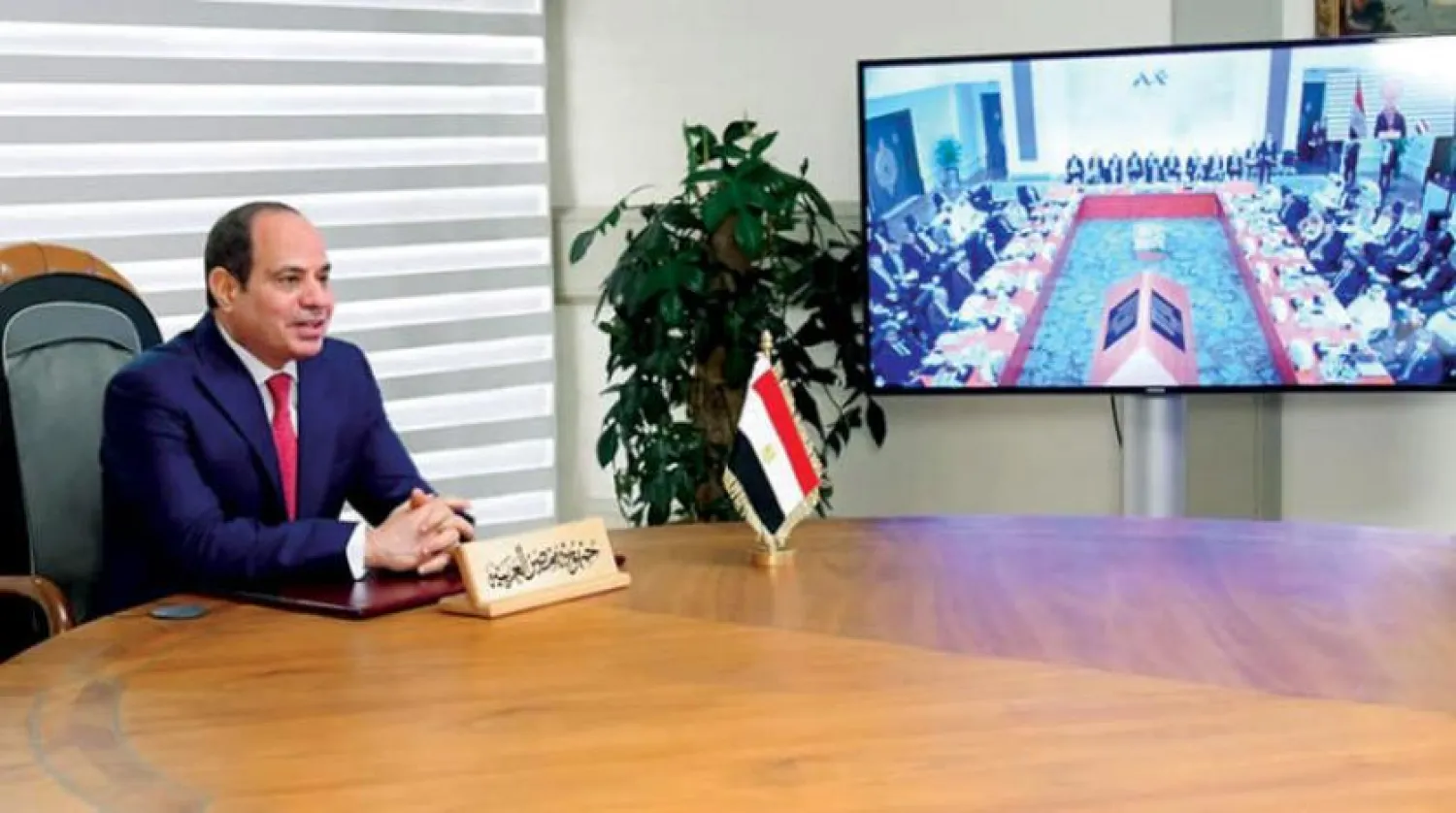Egyptian President Abdel Fattah al-Sisi called Tuesday for the “adoption of the principle of joint responsibility” to deal with challenges in the region, especially terrorism and extremism.
Speaking virtually during an extraordinary meeting of the Arab Intelligence Forum held in Cairo, Sisi said combatting terrorism on a regional scale requires comprehensive approaches, including ending foreign meddling in Arab affairs, as well as respecting the Arab peoples’ voice and Arab states’ sovereignty.
“Egypt had not and will not spare any effort to assist its fellow Arab states in protecting themselves through comprehensive political solutions,” he stressed.
These solutions should be based on unifying each country’s military institutions, the withdrawal of foreign forces and mercenaries and ending the presence of armed militias.
Presidential spokesperson Bassam Rady said Sisi commended the initiatives launched by the forum to achieve joint security work and exchange assessments in a transparent way.
The extraordinary meeting of the Arab Intelligence Forum was attended by chiefs of intelligence agencies at Arab countries.
They highlighted the importance of the forum as a firm mechanism that supports close intelligence cooperation among Arab states and contributes to establishing a comprehensive and tight system to combat terrorism.









